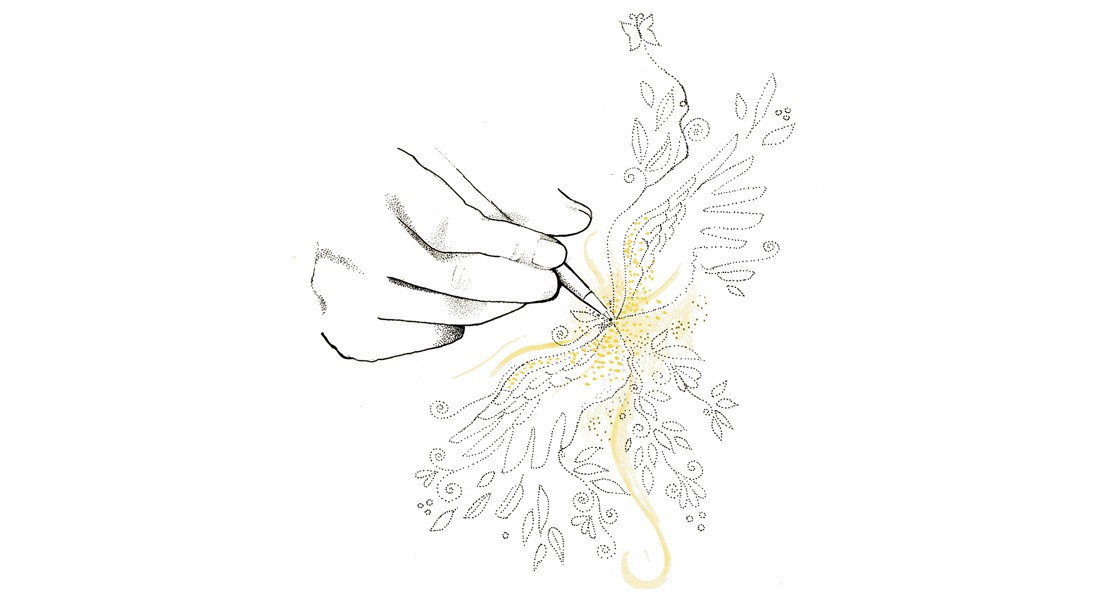Thin Air Writers Festival set to fly at high altitudes
Festival explores and nurtures contexts of creation
As the Thin Air Winnipeg International Writers Festival enters its 23rd year, director Charlene Diehl is searching for new ideas, new voices and new experiences.
“We see our job as helping people encounter something they might not already have an idea about,” she says. “The role of the festival in a way is ... to present the best books you’ve never heard of.”
The festival, which will run from Sept. 21 to 29, features 75 local, national and international writers. For author and University of Winnipeg literature and film professor Dr. Jonathan Ball, writers’ festivals are ideal places to be as an emerging reader or writer.
“When you’re young, you can afford to leave the house,” he says. “You may have no money, but you can still afford your time.”
Ball believes that festivals are a perfect place to understand that writing always comes out of a specific
lived experience.
“It’s really important to get a clear sense of what are the material conditions under which people are writing.” Ball says. “It’s really valuable to get a fuller sense that (writers) are people in a society. ... People don’t create this stuff in isolation.”
Diehl agrees that the festival is a great place for emerging talent. She hosts onstage conversations with the writers after they read their work, asking them to describe their creative process.
“The answers are not the same,” she says, “which is actually a really important lesson for writers, too – that you can be looking for instructions for figuring out how do I do it, but ultimately, you have to find your own way.”
This year’s festival will include a three-day focus on Indigenous writing, called Voices in the Circle, featuring writers like Billy-Ray Belcourt, Jordyn Pepin and Joshua Whitehead (who recently made the long list for the 2018 Giller Prize).
For Diehl, Voices in the Circle (which is the culmination of a year-long series of events exploring Indigenous writing in Canada) is about nurturing a politics of reconciliation within major cultural institutions.
“It’s changing (the festival), which is really the right thing,” she says. “I think all of us cultural institutions of various sizes and ages, we’re all tasked with figuring out how to move ourselves into ... supporting the absolutely necessary work of reconciliation. It’s not hard, because the writing is amongst the most exciting coming out of the country.”
New writing will also emerge from the festival itself. Two hundred years ago, a group of writers including Mary Shelley and Lord Byron locked themselves inside a house for the night to see who could write the best horror story. Ball is taking part in a live-writing event called The New Fantasmagoriana at the Dalnavert Museum and Visitors’ Centre, recreating the infamous occasion.
A group of horror writers will stay locked inside the Dalnavert for the night, with a reading of the works produced, on Sept. 21. For Ball, rubbing shoulders with other writers at this event formalizes what he believes all writers require.
“I think it’s really important to get out there and meet other writers,” he says. “You need the influence of these other people.”
For Diehl, the playfulness of the event is really what’s at the festival’s heart.
“If you are willing to give yourself over as a reader and let that (writer) take over your sense of language and your sense of story and just live in there for a bit,” she says, that’s “why we all loved to read when we were kids anyways, right?…You’re hiding, you’re escaping, you’re journeying, you’re adventuring, you’re being something else.”
The Thin Air Winnipeg International Writers Festival runs from Sept. 21 to 29. More information on readings and workshops is available at thinairwinnipeg.ca.
Published in Volume 73, Number 3 of The Uniter (September 20, 2018)







